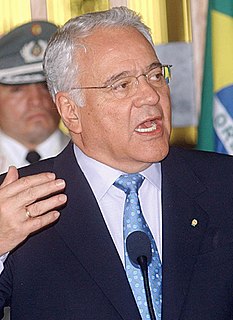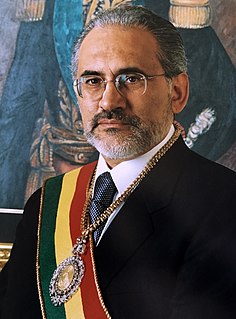Top 81 Quotes & Sayings by Bolivian Authors
Explore popular quotes by famous Bolivian authors.
In 2005, before I was president, the state of Bolivia had only $300 million from hydrocarbons. Last year, 2007, the Bolivian state - after the nationalization, after changing the law - Bolivia received $1,930 million. For a small country with nearly 10 million inhabitants, this allows us to increase the national economy.
Bolivia's majority Indian population was always excluded, politically oppressed and culturally alienated. Our national wealth, our raw materials, was plundered. Indios were once treated like animals here. In the 1930s and 40s, they were sprayed with DDT to kill the vermin on their skin and in their hair whenever they came into the city.


